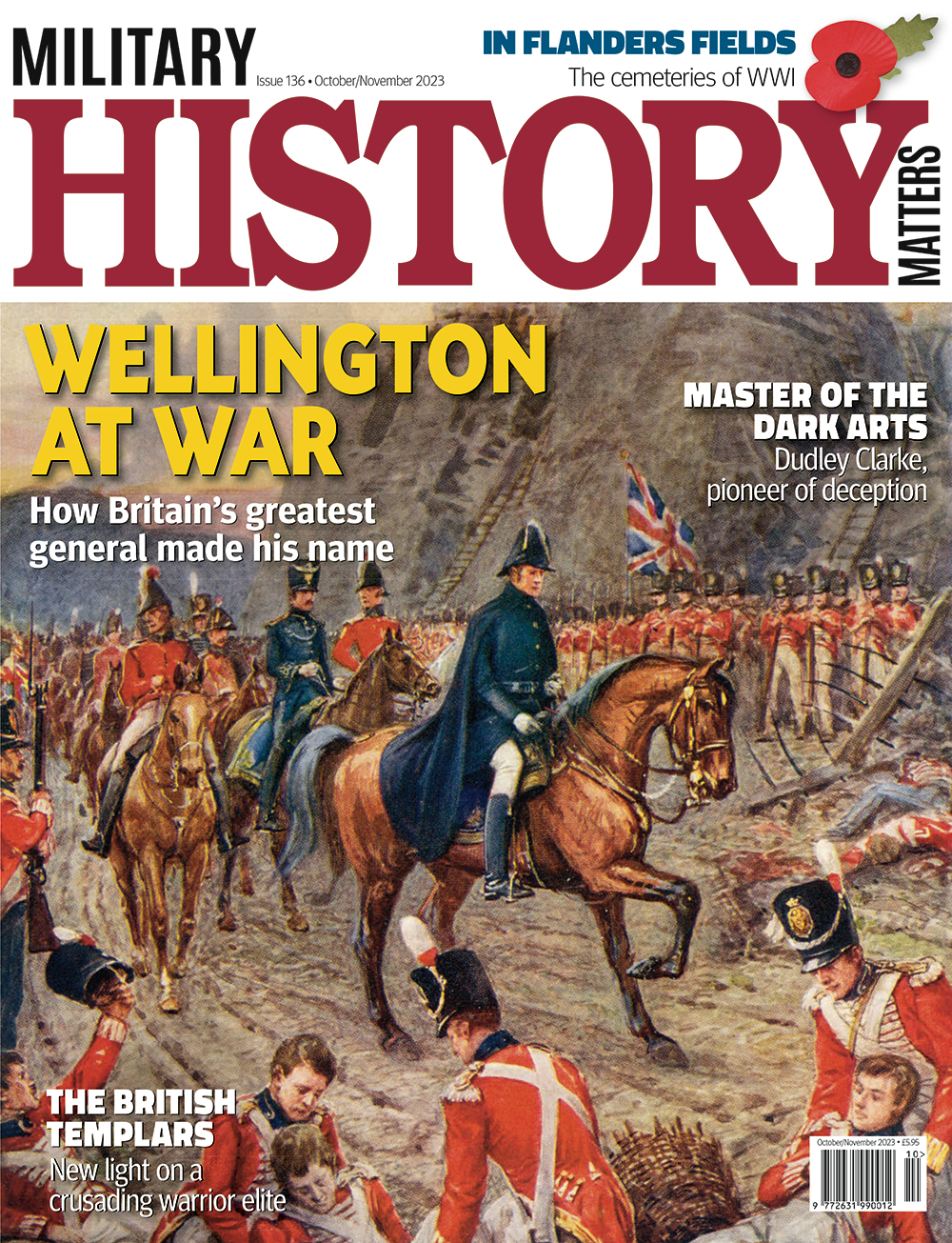It is often said of the Duke of Wellington that he ‘never lost a battle’ – and while some may quibble with that description, it is certainly true that the British commander’s extraordinary run of victories in 1808-15 was crucial in bringing the Napoleonic Wars to an end.
As we discover in our cover story for this issue, Wellington’s success was founded on qualities of decisiveness, of common sense, and of attention to detail that first came to widespread public attention during the Peninsular War – the brutal six- year conflict in Spain and Portugal, where he led a coalition of forces fighting the French emperor.
Napoleon himself would describe the Peninsular War as his ‘bleeding ulcer’, haemorrhaging men and money in equal measure. But as Graham Goodlad explains, it was also the conflict that made his adversary’s name, establishing Wellington’s reputation as Britain’s greatest general.
Also in this issue, Taylor Downing begins a new four-part series on the history of deception during World War II with an eye-opening profile of Dudley Clarke, the flamboyant pioneer of misinformation.
Elsewhere, Steve Tibble reveals the British contribution to the Knights Templar, the crusading warrior elite; while Tim Newark traces the career of Arminius, the Germanic warlord who annihilated three Roman legions at the Battle of the Teutoburg Forest.
And finally, to mark Remembrance Day, Nicholas Saunders reports on a groundbreaking new exhibition in Belgium, telling the story of the cemeteries of World War I.
.

